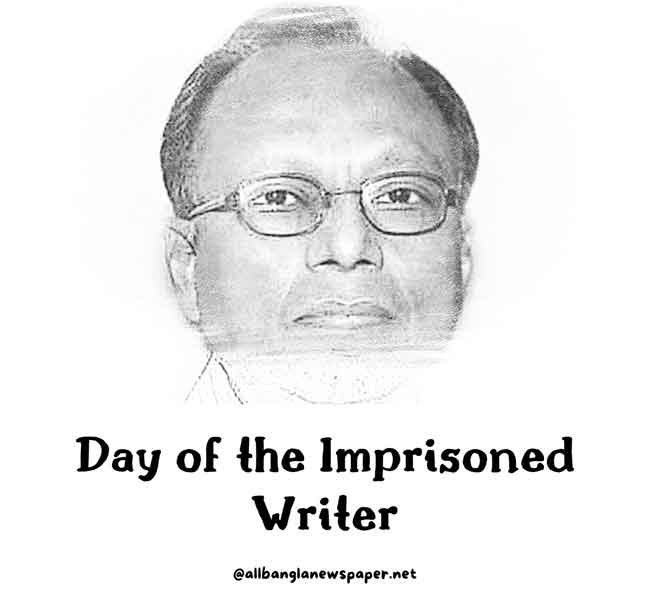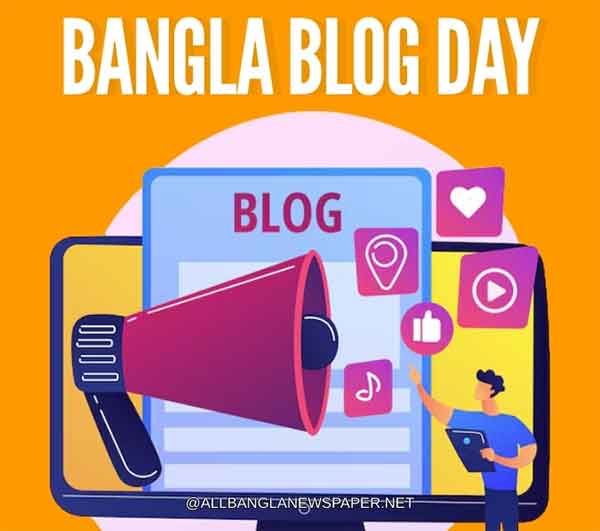
The Day of the Imprisoned Writer, observed every November 15, is an international day dedicated to raising awareness about writers who face persecution, imprisonment, and even death for their words and ideas. Initiated by PEN International, a global organization that defends the rights of writers and journalists, this day reminds us of the crucial role writers play in protecting freedom of expression and human rights.

Understanding the Purpose of the Day of the Imprisoned Writer
This day isn't only about recognizing individual writers; it's about advocating for the principles they represent. Freedom of expression is a cornerstone of any just and democratic society, and writers are often on the front lines, speaking out on issues that affect their communities and, sometimes, the world at large. Whether they are journalists, poets, novelists, or bloggers, writers can be seen as the guardians of truth, courageously shedding light on political and social issues, often at a personal cost.
Why Are Writers Imprisoned?
Writers around the world are subjected to threats, attacks, and imprisonment for various reasons. In many cases, their work challenges powerful institutions or criticizes governmental practices, touching on subjects deemed controversial or taboo. In other instances, they expose human rights abuses, environmental injustices, or corruption, actions that authorities may try to silence. Here are a few common reasons why writers are imprisoned:
• Political Dissent: Writers who criticize political leaders or policies are often targets for imprisonment, especially in nations where authoritarian regimes control the flow of information.
• Religious or Cultural Criticism: In some countries, discussing or criticizing certain religious beliefs or cultural practices can lead to severe consequences, including imprisonment or even death.
• Advocating Human Rights: Many writers raise awareness about human rights issues. These writers frequently face detention or violence for bringing global attention to injustices.
• Exposing Corruption: Writers and journalists who investigate and report on corruption within government or corporations risk their lives and freedom, as they often reveal truths that powerful entities wish to keep hidden.
Historical Background of the Day of the Imprisoned Writer
PEN International established the Day of the Imprisoned Writer in 1981 to bring attention to the plight of imprisoned, tortured, or murdered writers. For over four decades, this day has grown into a global movement, with writers, journalists, and supporters joining forces to call for justice. Each year, PEN International and affiliated organizations highlight five cases from different parts of the world to symbolize the thousands of writers who suffer for their work.
Prominent Cases of Imprisoned Writers
Around the world, notable cases illustrate the ongoing struggle. Writers face severe risks in countries like China, Iran, Turkey, and Russia, among others. Below are some real-world cases that underline the necessity of this day:
• Liu Xiaobo: A Nobel laureate from China, Liu Xiaobo was an activist and writer imprisoned for his pro-democracy writings. He advocated for peaceful political reform in China and spent years in detention before he died in 2017.
• Nazim Hikmet: This Turkish poet and playwright spent much of his life imprisoned due to his anti-war and pro-socialist beliefs. His poetry inspired generations, and his case highlights the price of speaking out.
• Maria Ressa: A journalist from the Philippines and co-founder of Rappler, Maria Ressa has faced legal harassment and threats for her reporting on government corruption and abuses of power. Her case underscores the threats faced by journalists, even in countries with democratic systems.
These cases represent the broader population of writers who are imprisoned for their beliefs, writings, and dedication to truth.
How the World Observes the Day of the Imprisoned Writer
On November 15, organizations and individuals worldwide held various events to highlight the importance of freedom of expression and the injustices writers face. Vigils, public readings, campaigns, and seminars are organized in solidarity with imprisoned writers. PEN International typically focuses on specific cases each year, urging supporters to take action by writing letters, signing petitions, and sharing these writers' stories with the world.
Supporting Freedom of Expression in Our Daily Lives
Freedom of expression is a right that can be taken for granted in some parts of the world, but for many, it's a hard-fought struggle. There are numerous ways individuals can support this fundamental right:
• Support Organizations: Groups like PEN International, Reporters Without Borders, and Amnesty International work tirelessly to defend writers. Donations, memberships, or simply sharing their work can make a difference.
• Advocate for Awareness: Educate others about the importance of the Day of the Imprisoned Writer and the ongoing battles many face for free expression. Social media, community discussions, and school projects are all platforms to spread awareness.
• Engage in Responsible Media Consumption: Promoting truthful journalism and being aware of reliable, well-sourced media can help fight misinformation and support freedom of expression.
• Write Letters or Sign Petitions: Many organizations offer opportunities to write letters to imprisoned writers or sign petitions on their behalf. This not only raises awareness but also sends a message to governments that people worldwide care about human rights.
• Educate Yourself on Censorship Issues: Understanding how censorship works and its impact on societies will help you appreciate the importance of freedom of expression and its champions.
Challenges Writers Face Today in a Changing World
The challenges that imprisoned writers face today are diverse. The rise of digital media, while empowering, has also complicated issues of censorship and surveillance. In some countries, governments closely monitor online activity and use social media as a tool for propaganda while restricting any opposing voices. In other places, writers may face online harassment or cyberbullying, forcing them into silence.
• Furthermore, traditional challenges remain: many writers are still physically threatened, imprisoned, or forced into exile. Those who are fortunate enough to be released often continue to face significant restrictions on their speech and movement. A disturbing trend is the increasing targeting of family members to intimidate and control outspoken writers, adding a layer of suffering.
The Global Impact of Supporting the Day of the Imprisoned Writer
Support for imprisoned writers goes beyond advocating for individuals; it represents a commitment to global justice and free societies. By supporting freedom of expression, people across the world contribute to a more informed and connected global community. The impact of these efforts may not always be immediate, but the collective push for change has historically been a powerful force in advancing Human Rights.
Concluding Thoughts on the Day of the Imprisoned Writer
The Day of the Imprisoned Writer reminds us that freedom is not free—it requires constant vigilance and effort. As people rally around imprisoned writers and journalists, we honor their courage and sacrifice. By advocating for these individuals, we also support a world where everyone has the right to voice their thoughts and ideas without fear of retaliation.
The work of these writers goes beyond their own experiences; their words echo globally, advocating for those who cannot speak. Observing the Day of the Imprisoned Writer encourages society never to underestimate the power of words and to stand together in defense of this fundamental right. When we support freedom of expression, we are building a foundation of understanding, tolerance, and justice for all.
Bringing Awareness with Global Health Parallels
Observing this day can also inspire reflection on other global causes of advocacy and support. For example, World Diabetes Day's Understanding Its Significance and Ways to Support the Cause highlights how raising awareness on a specific issue can lead to global action and better understanding, similar to how the Day of the Imprisoned Writer raises awareness for a more equitable society.
Understanding the significance of these observances reminds us that progress, whether in health or human rights, depends on both individual action and a united global commitment. Observing and supporting causes like the Day of the Imprisoned Writer strengthens our dedication to human rights and the protection of truth in all its forms.





